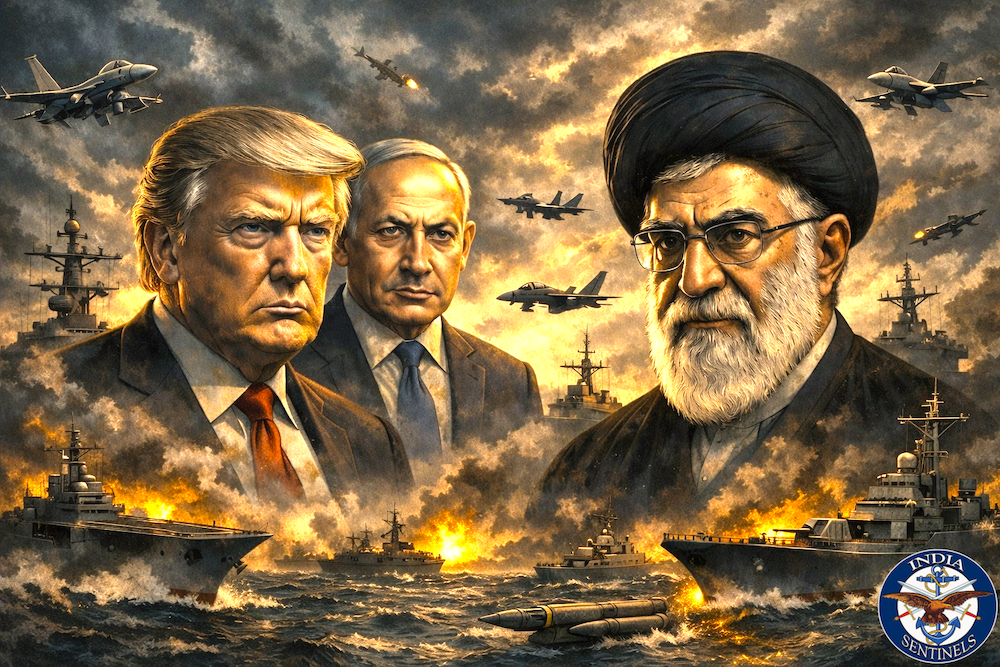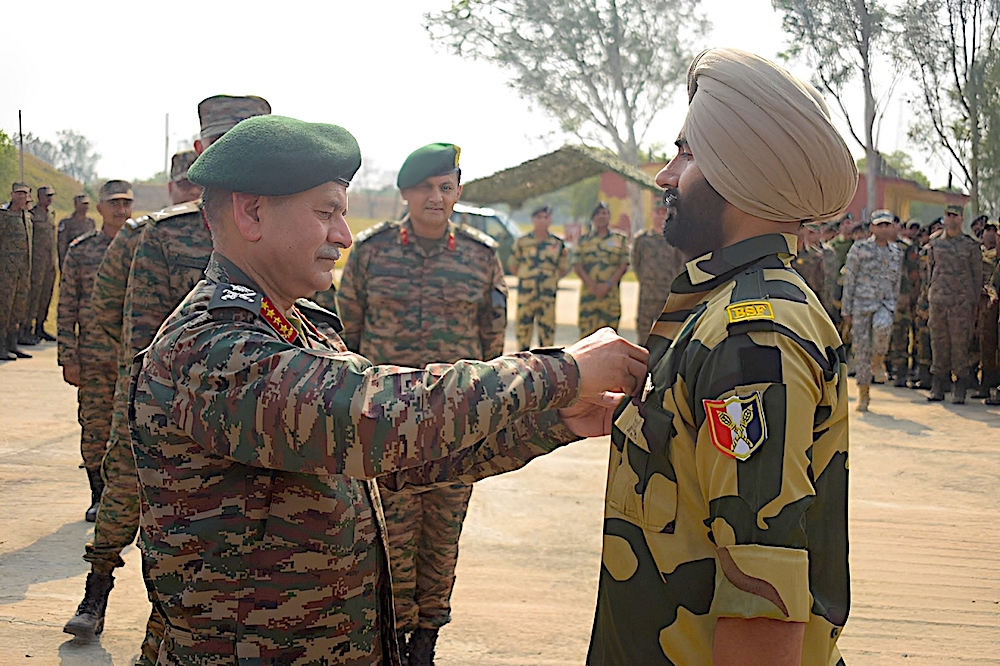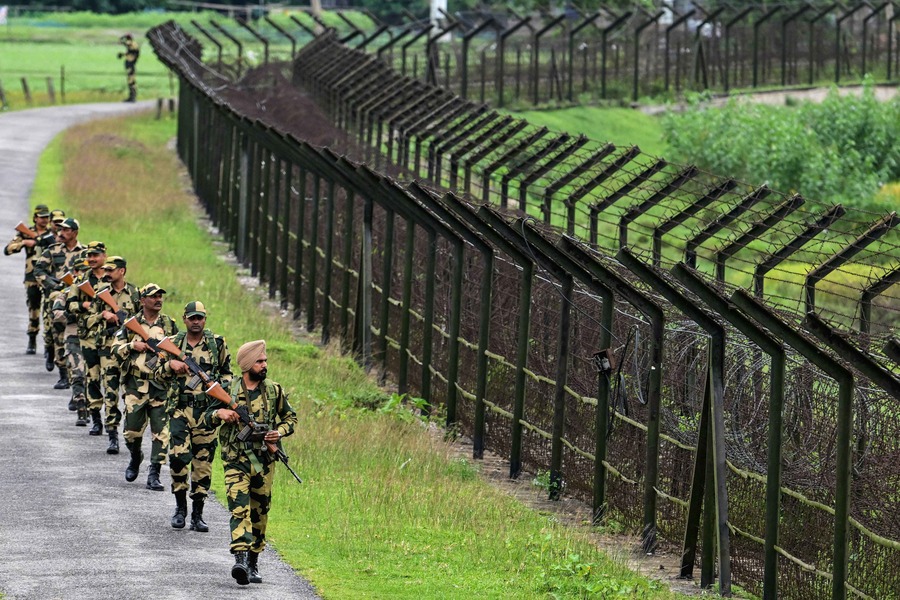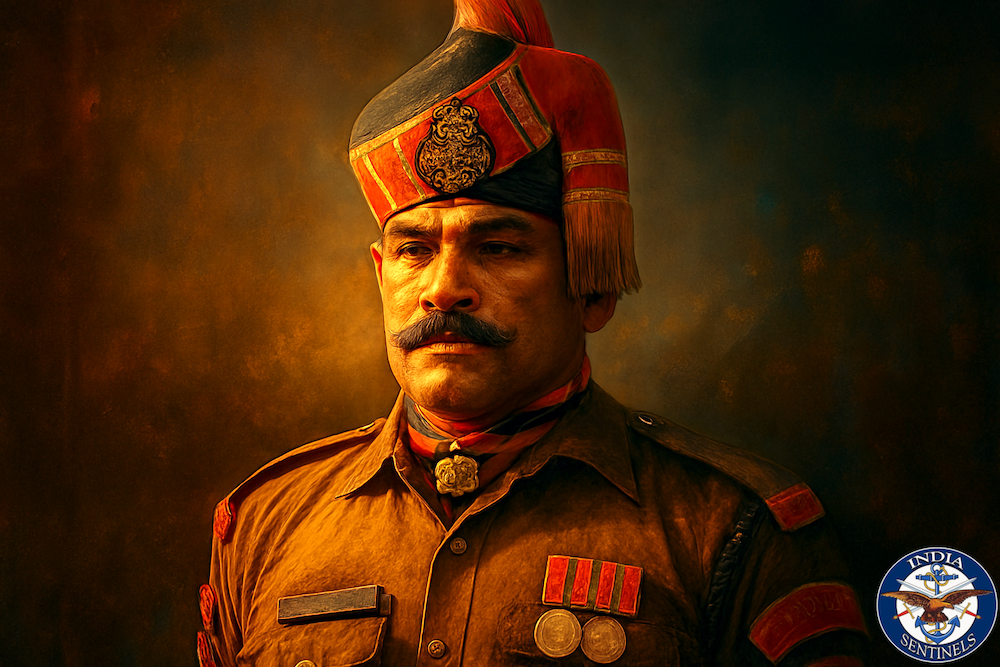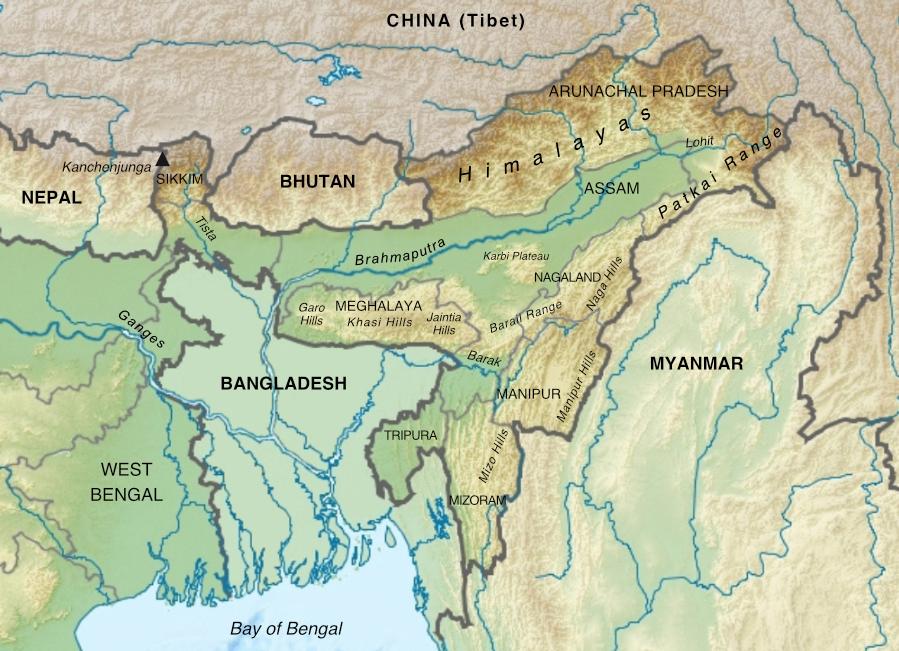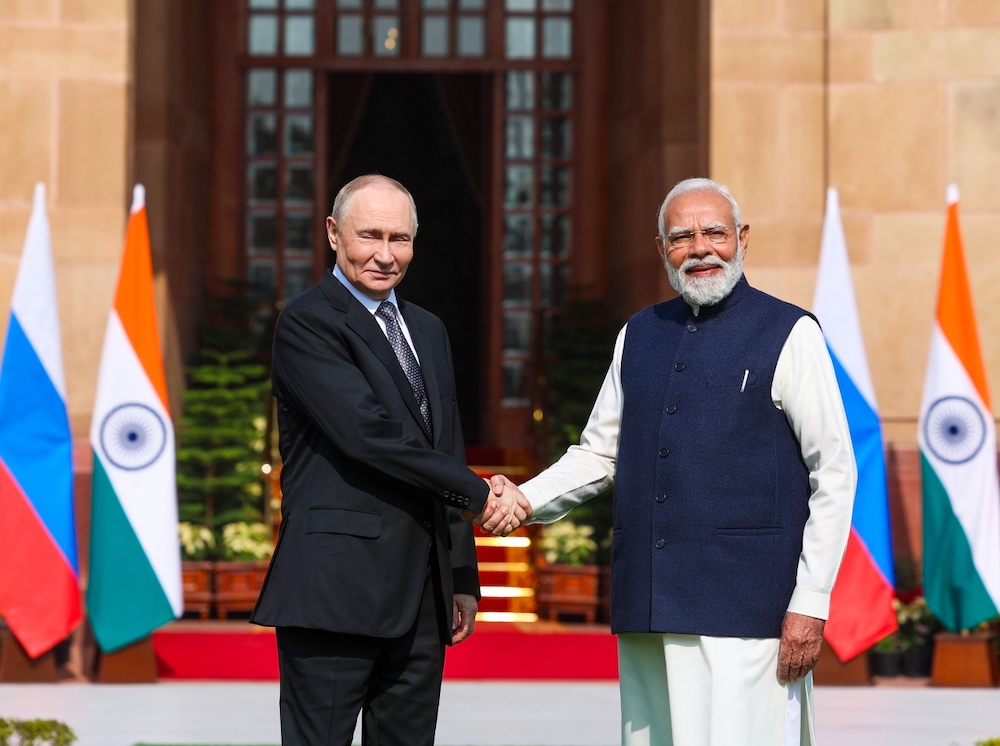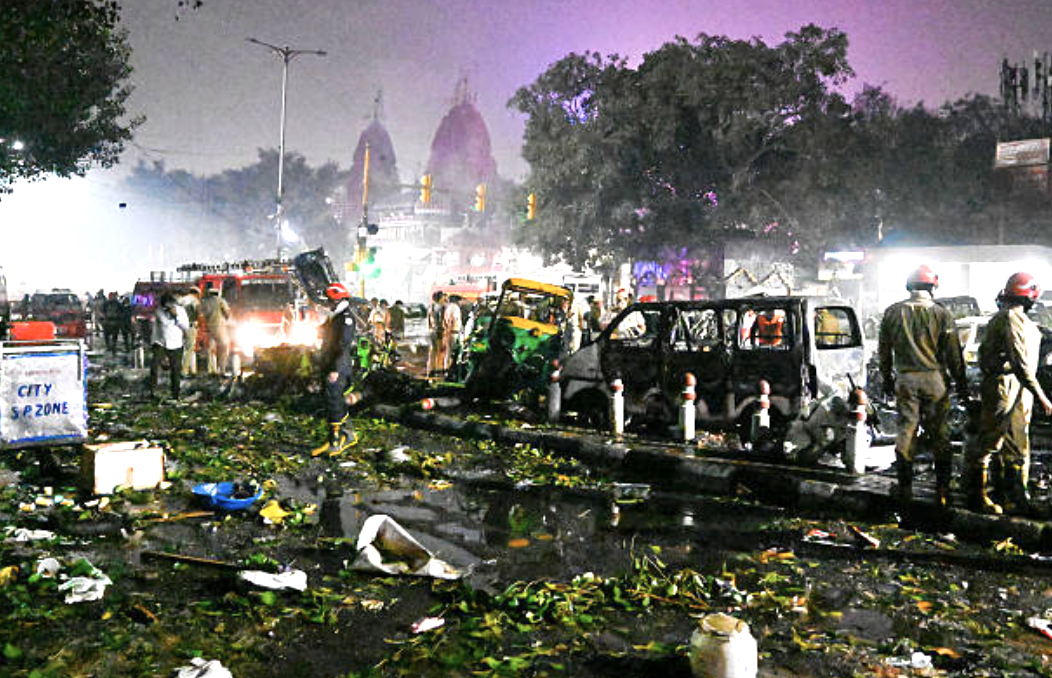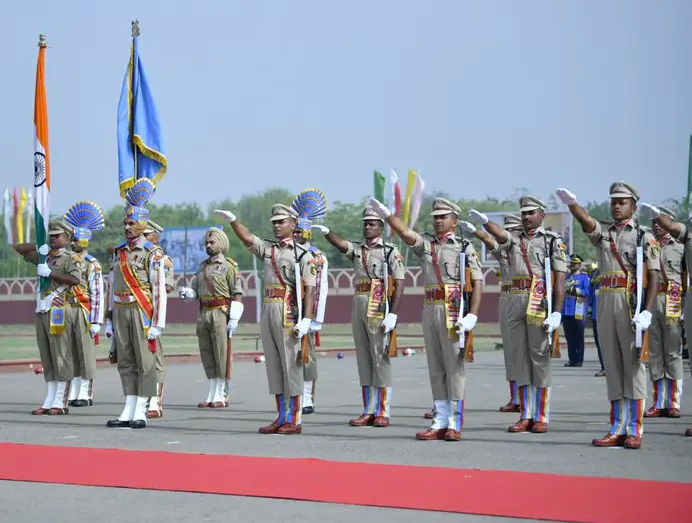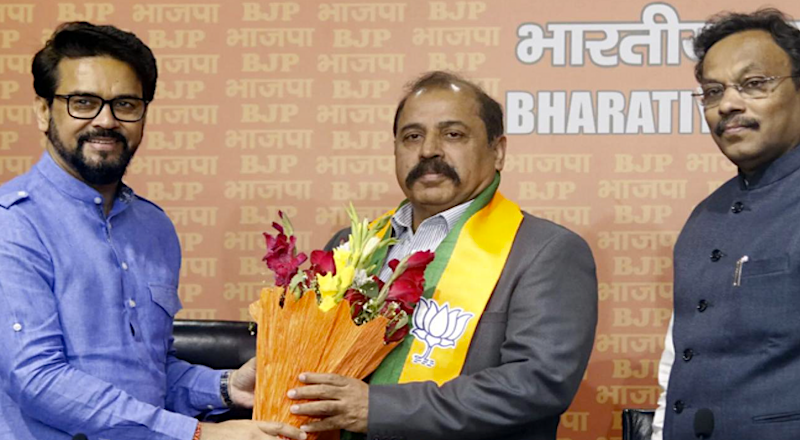 RKS Bhadauria (C), who was the IAF chief, joined the BJP within 2.5 years of his retirement from service.
RKS Bhadauria (C), who was the IAF chief, joined the BJP within 2.5 years of his retirement from service.
It is said that democracy survives and thrives on four pillars – executive, legislature, judiciary, and free and unbiased media. However, in my assessment, a democracy survives and thrives not on four but five pillars. The fifth being an apolitical armed forces totally insulated from politics.
Our immediate neighbourhood is an example where the fifth pillar stripped itself of its apolitical character and overwhelmed the first four pillars. The armed forces in Pakistan, Myanmar, and – to a lesser extent – in Bangladesh have given up their apolitical character long ago. They either rule the country or are the “deep state” in the country’s governance structure.
Our institutional structure of democracy denotes public trust and confidence. The governance structure to maintain public trust and confidence needs to hold ethics, morality, adherence to constitution, and constitutional values at very high pedestal. However, over a period there is dilution of public trust and confidence in the executive and news media. They need self-introspection as pillars of democracy.
Read also: India-Myanmar Border – Construct fence and strengthen free-movement regime
In our country, despite the ups and downs in democracy indicators, the judiciary and the armed forces are seen as beacons of light – upholders of ethics, morality, and adherence to constitutional values as protectors of the Constitution. Their institutional structure is still held in high public esteem for trust and confidence despite creeping aberrations.
Alanis J Hilario Serrano in her essay “Maintaining an apolitical army” says: “Apolitical means not interested or connected to politics or not connected to any political party.”
She further says: “An apolitical military is needed because without it, the personal interest of politicians and the antics of war over peace would destroy the very foundation of the military; without an apolitical military, the division of political parties would cause the military to default in its constitutional obligation. No longer would it support and defend the constitution against all enemies, foreign and domestic. Instead, it would serve politicians wanting to use it for their personal gain.”
In any democratic institutional structure, the armed forces are revered for their professional standards and apolitical character. They stand for the constitution of the country. Former Northern Army Command general officer commanding in chief Lieutenant General Harcharanjit Singh Panag (retired) in an op-ed on ThePrint gives the example of former US chairman of joint chiefs of staff General Mark Alexander Milley.
Read also: Bringing Jammu & Kashmir out of the quagmire of militancy
Gen Panag writes that the American general made a mark for himself as an upholder of the country’s constitution and military values. He writes: “His (Gen Milley’s) military career was blemished by the chaotic withdrawal of the US Army from Afghanistan in 2021, which happened against his advice. However, he cut a niche for himself as an upholder of the [American] constitution, military values, and ethics during the first 16 months of his tenure under former president Donald Trump.”
The American general faded into the mainstream as a respected citizen after retirement.
A soldier’s attributes, like military values and ethics, raise a question. Is it ethical for veterans to join politics and political parties or accept political assignments after retirement? It may or may not be true, but such arrangements smack of quid pro quo.
Since 1947, India has fought wars in 1948, 1962, 1965, 1971, and a localized conflict in 1999. On all occasions, the Indian armed forces gave a befitting account of their professionalism. Earlier, there was hardly any rush from veterans to join political parties and dabble in electoral politics with honourable exceptions, wherein they maintained and ensured high standards of ethics and dignity in political life, always careful that their political conduct should not affect those in uniform.
In the 21st century, many senior veterans joined politics. Prominent among them are General Vijay Kumar Singh (retired), General Joginder Jaswant Singh (retired), Lieutenant General Subrata Saha (retired), Air Chief Marshal Rakesh Kumar Singh Bhadauria (retired), and many more.
Read also: Attrition in CAPFs – A call for in-depth analysis, proactive measures
Gen VK Singh joined politics within two years of his retirement. ACM RKS Bhadauria joined active politics within two and half years of his retirement. Talking to reporters in March this year, ACM Bhadauria said, “I served the Indian Air Force for more than four decades, but the best time of my service was the last eight years under the leadership of the BJP government.”
The statement was avoidable.
There are concerns among veterans that the armed forces are not consulted in policy matters affecting them. Bureaucrats and politicians decide in isolation on matters affecting the services. Therefore, they argue, why not join politics and become the voice of veterans? Many cite the Agnipath recruitment scheme to buttress their argument.
There is also a feeling that people from all occupations join politics and there is no embargo on former military personnel joining politics. So, why single out veterans? However, this author believes that although veterans are free to join politics, there must be a cooling-off period before they take the plunge.
Veterans with the right credentials should not shy away from politics since their attributes of honesty, integrity, commitment, and good behaviour will positively affect the political environment. The positive influence these attributes have on people at large would help the society as a whole.
There is nothing wrong with veterans joining politics as our law and Constitution permits it. Rather we should welcome it as veterans have the potential to provide political parties the service of a professional who can guide and help the parties in shaping their national security policies.
Read also: Hamas attack on Israel – Lessons for India in border guarding
However, the question arises why political parties, once in power, are reluctant to appoint veterans to guide the national security structure. Why can’t a retired flag officer be appointed national security advisor, or an elected veteran appointed defence minister or minister of state for defence or home minister or his deputy to guide the policies on border management and internal security?
There is no cooling-off period for veterans to join politics. In 2012, the-then defence minister in the Congress-led UPA government, AK Antony, had said: “The government will seriously consider the proposal to bar senior officers of defence forces from taking up private jobs for five years after retirement.”
He said the parliamentary panel on defence had recommended a cooling-off period of five years from present one year. Interestingly, the earlier cooling-off period was two years, which was later reduced to one year. However, the “proposal” Antony mentioned was for officers of the rank of brigadier and above and concerned only private jobs and not politics.
This brings us to a pertinent question.
Why do we need an ethics code and cooling-off period for veterans to join political parties, especially those of the rank of flag officers involved in decision-making affecting policies and procurement?
The nation needs an ethics code and cooling-off period for veterans to regulate their political conduct, which may affect morale, discipline and professionalism of our armed forces. An ethics code and cooling off period will ensure that there is no dilution of professional conduct for post-retirement allurements.
Read also: Command duality in border guarding is against national security
India’s armed forces are structured in a way to maintain their apolitical character. The apolitical character was maintained by keeping the armed forces detached from internal security obligations as far as possible.
Raising of the Rashtriya Rifles for fighting counterinsurgency institutionalized the military’s role in counterinsurgency, and it was the first step that exposed the military to extraneous influences. Following the Kargil Review Committee’s recommendations, the Central Reserve Police Force was designated as the nodal internal security and counterinsurgency force. Each border-guarding central armed police force (CAPF) was tasked with one border under the “one border, one force” norm. The restructuring of the CAPFs was aimed to make them professionally more robust and slowly detach the armed forces from internal security.
Unfortunately, this has not happened.
It is a fact that flag officers and service chiefs joining political parties after retirement and giving statements praising a particular political party and/or the government affect those in service. It pushes politics in the minds of those in service, affecting their morale and professionalism. This bodes ill for the apolitical character of the armed forces tasked with upholding our Constitution, sovereignty, and territorial integrity of the country.
Read also: India-Myanmar border guarding needs a fresh approach
What is the way out?
The way out is an ethics code for veterans joining politics. The code must lay down conditions regulating the political conduct of veterans to ensure that their political conduct in no way affects the morale, discipline, and professionalism of the armed forces. In addition to the ethics code, implement a cooling-off period for veterans to join politics.
It is a fact that the government needs professional and expert advice on critical issues, like national security, which can be best rendered by veterans. They do not need to dabble in politics to serve the nation.
The government can certainly take advantage of their vast experience by appointing them as experts for specific purposes and specified tenure. It must bring a “cooling-off law” to prohibit veterans from joining politics for a minimum period of five years after retirement.
There is an urgent need for such a law to insulate the armed forces from political influences.
Disclaimer: The views expressed in the article are the author’s own and don’t necessarily reflect the views of India Sentinels.
Follow us on social media for quick updates, new photos, videos, and more.
Twitter: https://twitter.com/indiasentinels
Facebook: https://facebook.com/indiasentinels
Instagram: https://instagram.com/indiasentinels
YouTube: https://youtube.com/indiasentinels
© India Sentinels 2024-25

